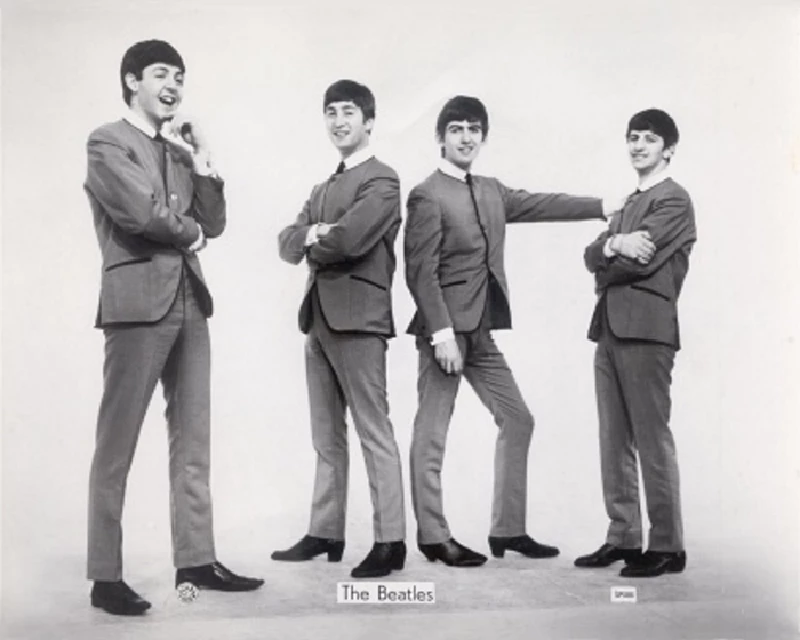Miscellaneous - Sick of the 60s? You'll Have to Change the World
by Mark Rowland
published: 24 / 7 / 2012

intro
In 'Rock 101' Mark Rowland reflects upon the massive debt the world owes to the 60s, but also asks if we have stepped back as a result of it
The 1960s still casts a long shadow over our culture, particularly music. The Beatles and the Stones, among countless other bands, are still seen as the pinnacle of pop and rock greatness. That decade is still discussed in fairly reverential terms, particularly when it comes to our cultural aspirations. Our post-2000 decades, by comparison, have largely been derided as somewhat culturally barren. This is, of course, largely unfair, but it is true to say that we haven’t had a big, easy to define musical movement sweep through the nation’s youth. We had those in the 70s, 80s and 90s, now all looked back on with nostalgic fondness. But none of these quite compares with the way we view the 60s, which is always the pinnacle against which we view and judge cultural movements. So was the music just much better back then? Well a lot of it was very good, but a lot more of it was very bad. Bands like the Beatles pushed pop boundaries and made wonderful music, but subsequent decades also had their brilliant innovators. Although those innovators are acknowledged for their talents, they, however, still sit below the biggest bands of the 60s in the minds of the public. There’s a reason why Paul McCartney was wheeled out to perform at the opening ceremony of the Olympic Games. The Beatles, more than that, the 60s, are seen as unifying. As sick as we may be of hearing it, ‘Hey Jude’ unites the nation, and perhaps even the world, in one big sing-along. We compare everything unfavourably to the music and culture of the 60s because of what that decade represents. It’s more than just innovation in culture – it’s broad, sweeping social change. The 1960s was a social and cultural big bang that set us on a path of greater freedoms artistically and socially. It knocked holes in the class system, allowing for greater social mobility. We didn’t get total equality between races and sexes, but we made significant inroads. Homosexuality was decriminalised in Britain in 1967, allowing for people to be open about their sexual orientation for the first time. The social and cultural changes that we’ve experienced since have been the aftershocks of that big bang. Our world, with all its variety and choice in terms of music, fashion, art, film and even hairstyles, owes a massive debt to the 1960s. Beyond culture, we’re now able to choose whoever we want as a sexual partner (providing they choose you too). Sex is no longer restricted to married couples, and women have a choice when it comes to pregnancy. We’re now tantalisingly close to giving homosexual couples the right to get married. The ball for this started rolling in the 1960s. It is true to say that the freedoms won in the 1960s has also given us our divorce rate and ‘The Only Way is Essex’ – we embraced the cheap and exploitative elements of the culture as well as the brilliant ones. We’ve also never been able to shake that residual sexism that still permeated our society despite the strength of the 1960s feminist movement. When you look at today’s media and the way that women are portrayed in our newspapers and magazines, on television and in music videos, it feels in a lot of ways like we have stepped backwards. In fact, I suspect that this never went away. We’re now feeling the lowest ripples of the 1960s in our current decade. The cultural and social energy it produced seems to be running out of steam. Perhaps we’re getting to the point at which we need a new big bang – one that will drag us kicking and screaming into the new century. The social movement of the 1960s came after years of post-war austerity. We are now suffering one of the worst recessions for decades. Perhaps we’ll find a new cultural movement on the other side of it.
most viewed articles
current edition
Deb Googe and Cara Tivey - InterviewJack Frost - As Seen on TV
Nils Petter Molvaer - El Molino, Barcelona, 24/4/2025
John McKay - Interview
Editorial - July 2025
Robert Forster - Interview
When Rivers Meet - Waterfront, Norwich, 29/5/2025
Kruder and Dofmeister - Paral-lel 62, Barcelona, 27/4/2025
Skunk Anansie - Old Market, Brighton, 16/5/2025
Yardbirds - Des Plaines Theater, Des Plaines, 18/4/2025
previous editions
Boomtown Rats - Ten Songs That Made Me Love....Heavenly - P.U.N.K. Girl EP
Oasis - Oasis, Earl's Court, London, 1995
Loop - Loop / Godflesh - Heaven, London, 4/6/2014
Super Furry Animals - Ten Songs That Made Me Love...
Brad Elvis - Interview
Serge Gainsbourg - Ten Songs That Made Me Love...
Not Forgotten Girl - Interview
Heaven 17 - Interview
Joe Perry (Aerosmith) - Interview
most viewed reviews
current edition
Davey Woodward - Mumbo in the JumboVultures - Liz Kershaw Session 16.06.88
Billy Nomates - Metalhorse
HAIM - I Quit
Vinny Peculiar - Things Too Long Left Unsaid
Peter Doolan - I Am a Tree Rooted to the Spot and a Snake Moves Around Me,in a Circle
Pulp - More
Garbage - Let All That We Imagine Be The Light
Morcheeba - Escape The Chaos
Little Simz - Lotus
Pennyblackmusic Regular Contributors
Adrian Janes
Amanda J. Window
Andrew Twambley
Anthony Dhanendran
Benjamin Howarth
Cila Warncke
Daniel Cressey
Darren Aston
Dastardly
Dave Goodwin
Denzil Watson
Dominic B. Simpson
Eoghan Lyng
Fiona Hutchings
Harry Sherriff
Helen Tipping
Jamie Rowland
John Clarkson
Julie Cruickshank
Kimberly Bright
Lisa Torem
Maarten Schiethart